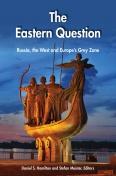I am a Russian citizen. It is therefore not my job to advise Western governments on how to develop or implement specific policies, including policies towards Russia. I also strongly believe that only Russians, and not outsiders, can turn Russia into a more peaceful, democratic and prosperous country. On the other hand, I think that a more informed policy debate would be in everyone’s interest. This is why I offer a few arguments that may be useful for Western policy makers and policy advisors to take into account when developing their policies and strategies.
Everything we know about today’s Russian regime is consistent with the following simple theory. This regime has neither an ideology nor a global vision. Its domestic and foreign policy choices are dictated by the logic of its political survival. The regime does not want to rely on mass repression and so prefers “hybrid strategies:” propaganda, censorship, cooptation of the elites, and limited repression against opposition. Its foreign policy should be understood as part of this continuing struggle to survive. Foreign policy adventures make propaganda narratives more convincing; the external conflicts justify the need to rally around the leader whatever his internal failures.
Previously, the regime’s legitimacy was based on its economic per- formance. After the growth slowdown in 2012–14 and the respective decline in its popularity, the regime started looking for alternative sources of legitimacy. The annexation of Crimea came up as an excellent opportunity to boost approval ratings. As the Russian economy entered recession, foreign policy became a critical means to maintain popularity. However, some time in the fall of 2014 the government understood that further aggression could result in catastrophic economic consequences, so it decided to freeze the conflict in Ukraine and started to look for an alternative foreign policy agenda, in this case, Syria.
Read the rest of the chapter by clicking on the pdf to the right.
Sergei Guriev is a professor of economics at the Instituts d’études politiques (Sciences Po) in Paris. He is a Research Affiliate at the Centre for Economic Policy Research (CEPR), London. He is also member of the board of the Dynasty Foundation, a member of the Scientific Council of Bruegel, of the Advisory Council of the Peterson Institute on International Economics, and of the Academic Advisory Board of the Blavatnik School of Government at Oxford University. He has published in international refereed journals including the American Economic Review, Journal of European Economic Association, Journal of Economic Perspectives, Economic Journal, and American Political Science Review. Between 1999 and 2013 he was on the faculty of the New Economic School in Moscow and between 2004 and 2013 he was a tenured faculty member and Rector of the New Economic School. In 1997-98 he was a post-doctoral fellow at the Department of Economics at M.I.T. and in 2003-2004 he was a Visiting Assistant Professor in the Department of Economics at Princeton University. In 2006, he was selected a Young Global Leader by the World Economic Forum. He has been a regular columnist for Forbes Russia, Vedomosti, the New York Times, Financial Times, Washington Post, Moscow Times and Project Syndicate. He received his Dr. Sc. (habilitation degree) in Economics (2002) and PhD in Applied Math from the Russian Academy of Science (1994), and MSc Summa Cum Laude from the Moscow Institute of Physics in Technology (1993).

